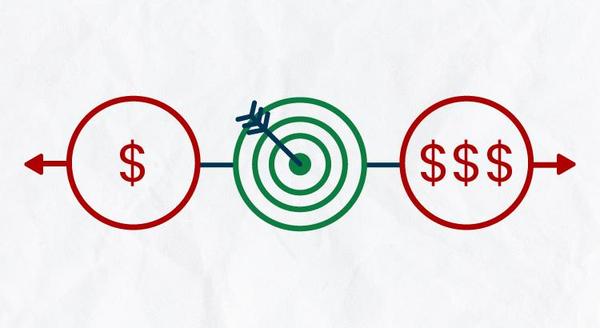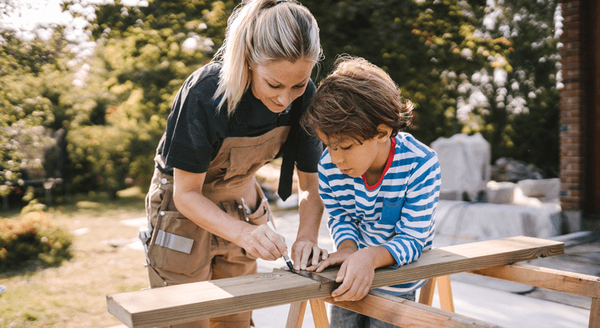
Is Buying A Home Right Now A Mistake?
When you see all those “for sale” signs pop up in your neighborhood — and then see them change to “under contract” shortly afterward — it’s easy to feel like you’re missing out if you’re not buying a home this summer. So, you run the numbers, spend nights scrolling through listings, and start to imagine your new life in your dream home. There’s just one thing: you may not be ready to buy a home right now. While most real estate agents point to a hot market (and still low-interest rates) as a good reason to start making offers, there are more factors that go into this big life decision. The real estate agents that automatically tell you that NOW is the right time to buy a home can’t know that without knowing the specifics of your situation. Before going down a long and stressful journey, let's go through some scenarios that might help you decide if it's the right or the wrong time for you to buy a home You have to get very creative to afford a down payment. Let’s face it: Saving enough for a 20% down payment on a home can be a daunting challenge. While many loans allow for lower down payments, these also often come with “hidden expenses” that add to your monthly mortgage costs such as private mortgage insurance (PMI) or higher interest rates. While every homeowner-to-be anticipates making sacrifices to afford their home, you don’t want to be in a position where affording your monthly mortgage payment requires serious hardship. In addition, your monthly mortgage payment isn’t the only expensive line item in your budget: you’ll need to be able to afford maintenance, furniture, and emergency repairs big and small. Your friends are all buying homes and you feel left out. This is a big one. When everyone else is buying new places, it’s easy to fall down the spiral of judging yourself because you’re not doing the same. However, the grass may seem greener on the other side of that “sold” sign. Your friends may be showing off their new digs, but not telling you how they’ve had to put off going on vacation for at least a decade in order to afford it. Or, they may be able to afford it, but they’re not the ones who will be paying your mortgage. Don’t fall for peer pressure if your current place fits your needs right now. Everyone keeps telling you you’re “throwing money away” on rent. It’s true that you do build equity after you buy a home, but it can take years before you see an effect on your net worth. If you need to move (for work, a relationship, family, or because the home doesn’t suit your needs) before you have positive equity in your home, then you won’t enjoy the boost in net worth. If you value flexibility more at this stage in your life, then renting makes more sense. You can build your net worth in other ways too, like contributing to a savings account, 401k, or other investments. You have no idea what your current home is worth. Sometimes the market is just not in your favor right now, and there might be little changes you can make that can increase the value of the home you're currently in. Get a free and accurate home value report from one of our team members if you're unsure or haven't checked your home's value in a while. Get Your Home Value Report You’re focused on the style of the home rather than the lifestyle of homeownership. You’ve passed by a certain home dozens of times and find yourself looking through the listing photos more often than you look at photos of your family and friends. You’ve mentally re-decorated and decided exactly where you’ll put your sofa. Fun, right? Now imagine waking up at 7 AM on a Saturday to mow the lawn, fix the toilet in the master bathroom, and find out what’s making that creaking noise in the attic. Or, having to cancel your weekend get-together with friends because your water heater decided to stop working and a repair person can’t get there until later in the week. Not as fun. Home maintenance is an ongoing project filled with unglamorous tasks that you may not be ready for just yet. Your dream home will significantly add to your commute. While you may not think you’ll mind that extra hour on the road each way in order to have a garage to call your own, it’s likely you’ll feel differently after the novelty of the new home wears off. Though there are always trade-offs with homeownership, one involving location requires a huge life change — so it isn’t one to take lightly or rush into. This is also true when it comes to moving to a drastically different kind of area or any time you have to also consider a change of school systems. The very idea of moving makes you panic. Even if you can afford the down payment, have leftover money for emergencies, are okay with the lifestyle change of homeownership, and have found a new home that offers way more than your current place, you still may not be emotionally ready to buy a home. Something to consider: if you’re feeling anxious or overwhelmed about the idea, or it’s causing conflict with your significant other, a timeout may be needed. Pick a date in the future to revisit the idea of buying a home, then see how you feel. If your gut says you’re ready, get in touch with a real estate agent who will find you a home that’ll make you excited to make the big move.

The Key to Buying a Home This Year: Questions to Ask Your Real Estate Agent
If you are thinking of purchasing a home this year, you are not alone. In today’s competitive market, when it comes to buying a house, you must have an “in it to win it” mentality. You need the right people on your team and the right leader in charge of your game. Without a doubt, having the right real estate agent is the key to successfully landing the home of your dreams. One of the best things about employing a real estate agent is that you can get a straight answer about anything you need to know regarding purchasing a home. Here are a few examples of common questions that many people ask their real estate agents. What’s the First Step to Buying a Home? Before you get too excited and start hunting around for a home on the Internet, the first steps you should take before buying a home are threefold. It should begin with you checking your credit score, to give you an idea of what type of home loan you might qualify for. Next, you need to take an honest look at your finances and calculate how much house you can afford. Getting pre-approved for a home loan will also put you one step ahead of the crowd. After you have a solid figure in mind, allow the real estate agent that you have chosen to help guide you through a list of possible homes within your price range. Be sure to select a real estate agent that you trust and communicates well. Discuss with him or her what aspects of your ideal home are most important to you. Perhaps you desire a specific neighborhood or school district. Or, you might wish for particular aesthetic characteristics. Whatever the case may be, real estate agents specialize in locating what you desire, and making magic happen for you. Can You Recommend a Good Lender, Inspector, or Appraiser? When purchasing your first home, you will need to utilize various professionals during the process. Real estate agents often have an extensive network of connections. If you haven’t already gotten a pre-approval loan, getting a recommendation on a lender from your real estate agent may really help bring you up to speed. When you find a home you are interested in, it will be very helpful to have both an inspector and an appraiser ready to go - especially in this hot market! What Are the Closing Costs on a House? Some people don’t realize that a down payment isn’t the only thing they need to bring to the table when purchasing a home. Closing costs are also part of the equation. They are essentially processing fees that you are required to pay to your lender. Closing costs may comprise as much as 3% to 6% of the cost of your home. This money owed is separate from your down payment. Common types of closing costs include appraisal fees, attorney’s fees, and inspection fees. How Do I Compete to Win in a Bidding War? Many buyers wonder what to do when they have found their ideal home but find themselves in a bidding war over it. To begin with, if possible, offer the seller cash over financing. If this isn’t a possibility for you, make sure you can show proof that you are pre-approved to buy the home. Another thing you should do is assess any contingencies that you have included in your offer. Contingencies are essentially clauses in your contract that allow you to back out after signing. One common contingency is that the house must pass an inspection. While some contingencies are needed to protect yourself as the buyer, there are some that we may be able to do without. Your real estate agent will be able to advise on the best path forward here. Another smart move to win a bidding war is to offer earnest money. This is a deposit that you give the seller. Giving the seller earnest money shows that you are committed to purchasing the home. What Are the Next Steps After an Offer Is Accepted? Logically, after your offer was accepted, you may be ready to jump for joy! Before you do, let’s get real about what could happen next. First of all, don’t be surprised if everything doesn’t go exactly as planned. You need to prepare yourself for the possibility that the house could have issues, you can’t obtain the type of financing you want, or your house was not appraised high enough to justify its price. Being prepared for possible outcomes will help you overcome any challenges that may happen throughout the process. With that being said, here is what the schedule is like after your offer is accepted. To begin, your initial deposit is transferred. Next, all inspections on the home will be completed. Your lender will then choose a certified appraiser to assess the property. Your loan approval deadline will then approach. You will do the final walkthrough of the home, followed by signing all of the documents and transferring the rest of the down payment. In the final step, the property deed is stamped and the house legally becomes yours. Now it's time to celebrate!

How Do You Know If You're Ready To Buy a Home?
The Wild Wild West housing market had many people in panic mode — worrying that if they didn't act now, they may never be able to buy a house amid record-high housing prices and increasing interest rates. With the changing market conditions of today, hopeful homebuyers may be in a better position to act. It’s important to remember, though, that no matter what the market is doing, buying a home is something you shouldn't rush into. A mortgage is one of the biggest — and most important — responsibilities you’ll have in your life. Entering into home ownership before you’re ready could have negative impacts on your financial wellbeing. In this post, we’ll take you through some steps to help you decide whether or not you’re actually ready to purchase a home. Ready or Not? How To Determine if You’re Ready To Buy a Home In today’s changing market conditions, homebuyers must ensure they are in a good financial position before buying a home. Here are a few top things to consider. You Have Little to No Debt While there’s no hard rule that you have to be out of debt to buy a house, the lower your debt, the higher your pre-approval and the lower your interest rate — a homebuyer’s dream formula. In addition to these perks of having little to no debt, you should have more dispensable income to spend on your mortgage payment, repairs, furnishings, and anything else your heart desires. Your Savings Account Is Robust When buying a home and going into owning a home, expenses are a plenty and seem to pop out of nowhere — any homeowner knows this. From the down payment to closing costs to real estate taxes — and that’s before you even move in! Then, you have to be prepared for furnishing your home, replacing appliances, the AC going out, and any other emergencies that come up. It’s imperative — especially amid today’s changing market conditions and potential looming recession — to give yourself a healthy safety net when it comes to all of the bills and expenses that come with home ownership. Some experts recommend having six months of expenses set aside in your savings account, while others recommend having up to a year’s worth. One thing’s for sure, the more money you have in your savings account, the less stressful all of the expenses that come with homeownership will be. So, make sure your savings account is up to par before you sign on the dotted line for your new home. You Have a Steady Job Of course, no job comes with a 100% guarantee of permanent employment. But, the longer you’ve held a position, the more likely your job will be viewed as steady enough to get your mortgage approved. One big no-no during the home buying process is switching jobs, or, God forbid, up and quitting your job. Changing jobs can impact your loan approval, which means you may lose the approval on your dream, or your monthly payment could increase to something that’s out of your ability to pay comfortably. Also, having a steady job will ease the burden of making your mortgage payment because you’ll have an idea of what you can expect on each paycheck and whether you can realistically afford your mortgage. You Can Realistically Afford the Monthly Payment We’ve all been there, scrolling through Zillow, and we find the perfect house — and it even has a pool! We use the website’s payment calculator, and much to our surprise, the monthly payment seems completely manageable! Not so fast. It’s important to remember these online payment calculators often don’t consider all of the expenses associated with a mortgage payment. They also default to you providing a full 20% down payment. In reality, there are many more factors that will go into your house payment, including: Property taxes — which can increase each year (sometimes pretty significantly). Homeowner’s insurance. Homeowner’s association fees. City taxes and fees. Water, sewage, and garbage. Private mortgage insurance (PMI) if you’re unable to provide the full down payment. These added charges will likely add hundreds of dollars to your monthly payment, so it’s critically important that you don’t forget to factor these in to get a full picture of what you’ll be paying each month. Then you can ask yourself whether or not you can realistically afford it.
Categories
Recent Posts










